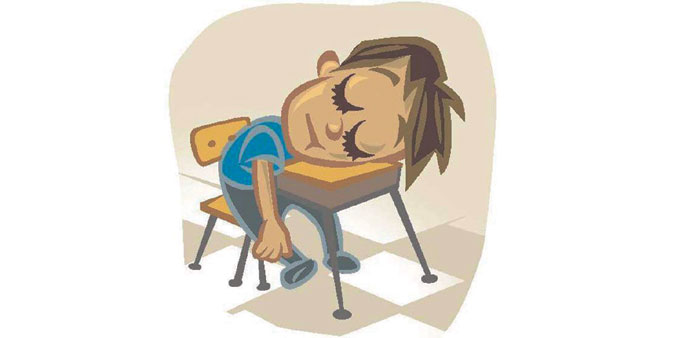Dr Luisa Dillner/London
A child’s nap often provides a much-needed rest for parents too. Time for an uninterrupted phone call, or a snooze on the sofa. And naps have to be a good thing for preschoolers, surely, since they need to unwind and get enough sleep for their brains to develop? Short naps have also been shown to be good for adults – improving alertness and reaction times.
So it feels counterintuitive for a review of 26 studies to conclude that napping in children over two years of age may not be a good idea after all. The review, published in the Archives of Disease in Childhood, says that after two years of age, napping is associated with going to sleep later at night, poorer quality sleep and waking earlier. Children vary in how quickly their daily cycle of waking and sleeping becomes consolidated into one chunk at night – afternoon naps generally decline between the ages of three and five. So should we discourage naps in preschool children – even if they really seem to need one?
Although the review talks about the effects of napping on two-year-olds, most of the evidence in the review actually comes from studies on three-year-olds. Also, the authors of the review article are clear that the research on children’s naps is of poor quality: some studies rely on parents remembering how much their children slept, or were for very short periods.
A study published in the Journal of Attention Disorders in February suffers from some methodological shortcomings (for instance small numbers – only 28 children between the ages of three and four, and only for five days), but was, at least, a randomised controlled trial, using actigraphs worn on the wrist to objectively measure sleep. It found that children who missed their naps slept better at night and scored higher in studies of memory and attention.
Dr Mark Mahone, one of the authors, says that sleep at night may be of a better quality than during daytime napping. Consolidating sleep at night, he says, provides a greater proportion of the slow-wave, restorative sleep that promotes brain development and reinforces what has been learned the day before. The study also found that the children who went without naps did not sleep more at weekends. This proves, says Mahone, that they did not have a sleep deficit to make up.
I could never get my children to nap, but for parents who can, there is no reason to stop. Mahone says that more research is needed before anyone starts making recommendations, and children’s sleep requirements are known to be variable. A three-year-old who doesn’t need a nap one day may be beside him or herself without one the next. - Guardian News and Media
♦ Dr Luisa Dillner, a writer and doctor, heads BMJ Group Research and Development.

